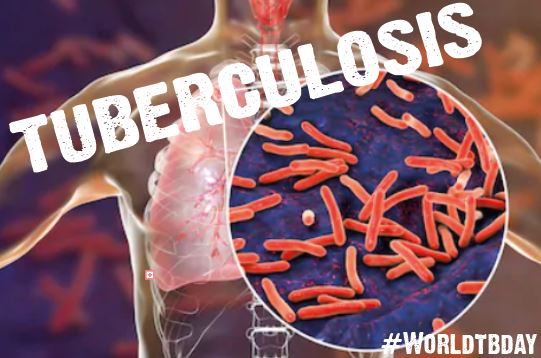
March 24th, 2020
Tuberculosis (TB)
By Unnati Chabildas
What is TB?
Tuberculosis (TB) is an infectious disease caused by the Mycobacterium tuberculosis (Mtb) bacterium. Tuberculosis generally affects the lungs, but can also affect other parts of the body, including the central nervous system, the lymphatic system, the genitourinary system, the bones and joints.
The classic symptoms of active TB are a chronic cough with blood-containing mucus, fever, night sweats, and weight loss . TB mostly affects adults in their most productive years, however all age groups are at risk. Most infections do not have symptoms, a condition known as latent tuberculosis, and which affects one quarter of the world’s population. People who are infected with HIV are 19 times more likely to develop active TB. The risk of active TB is also greater in persons suffering from other conditions that impair the immune system.
Globally, TB incidences are falling at about 2% per year, although a steady decline, the World Health Organization have set milestones for 2020 to have an annual decline of 4-5%.
How is it transmitted?
Tuberculosis is spread through the air when people who have active TB in their lungs cough, spit, speak, or sneeze. A single sneeze can release up to 40,000 droplets. Each one of these droplets may transmit the disease, since the infectious dose of tuberculosis is very small.
People with prolonged, frequent, or close contact with people with TB are at particularly high risk of becoming infected.
People with latent TB are not infectious and cannot pass on the infection.
How can I avoid getting it?
Tuberculosis prevention and control efforts rely primarily on the vaccination of infants and the detection and appropriate treatment of active cases.
The only available vaccine as of 2020 is Bacillus Calmette-Guérin (BCG). It is the most widely used vaccine worldwide, with more than 90% of all children being vaccinated. This vaccine does not offer substantial protection against pulmonary tuberculosis in adults. New vaccines are currently being developed, one of which is M72/ASO1, which is undergoing efficacy trials.
If you are diagnosed with active TB here are some things you can do to avoid the spread:
> Take all prescribed medication
> Always cover your mouth with a tissue when you cough or sneeze, throw the tissue away
> Wash your hands after coughing, sneezing or holding your hands near your mouth or nose.
> Avoid close contact with others
> Ventilate your room regularly